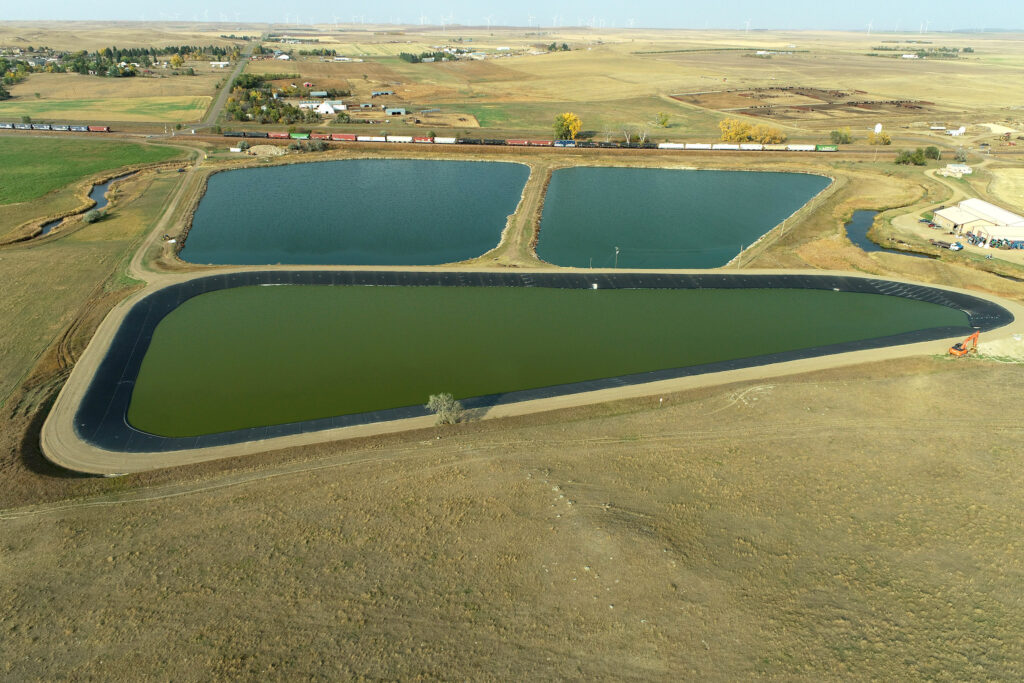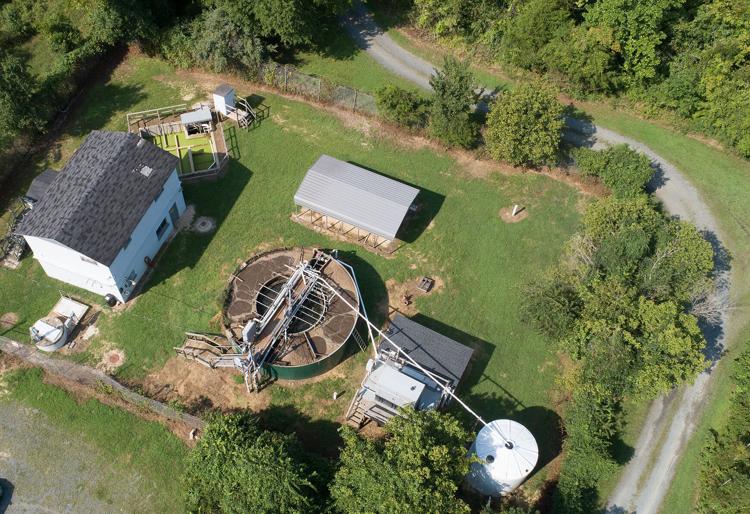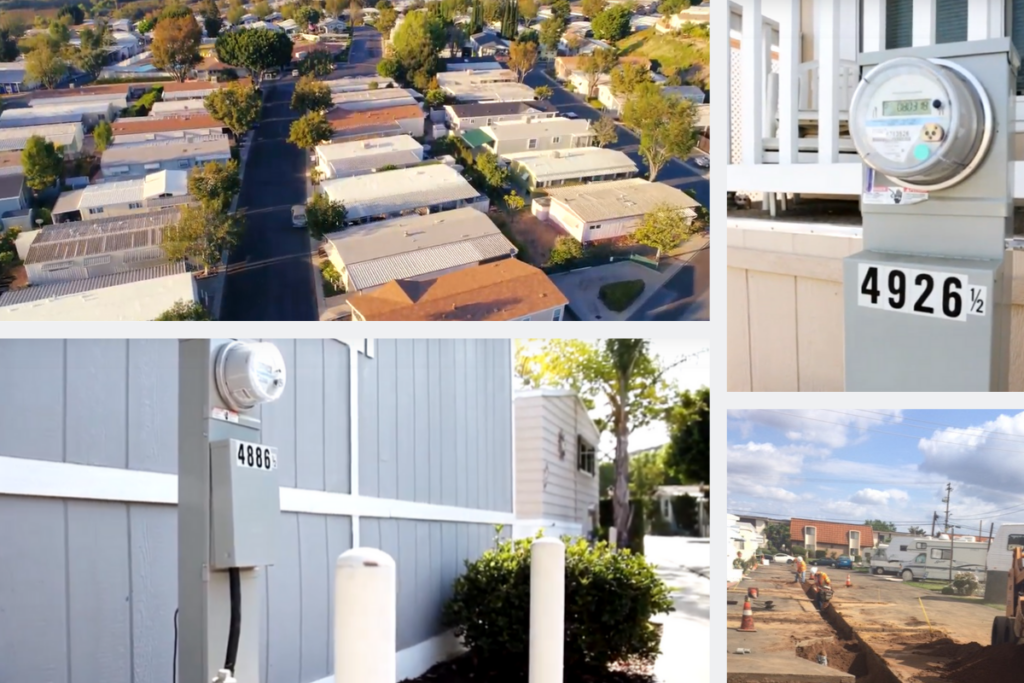Mobile Home Park Utility Considerations
-
 Tristan Hunter - Investor Relations
Tristan Hunter - Investor Relations
The types of utilities that a mobile home park has can significantly impact both the risk and the value of the property. Proper management and understanding of these utilities are crucial for maintaining a well-functioning and potentially profitable mobile home park. In this article, we will explore the different types of mobile home park utility systems found in trailer parks, discuss their risks, and provide considerations for each.
Types of Utilities in Mobile Home Parks
Mobile Home Park Utility: Sewer Systems
Sewer systems in mobile home parks can vary widely. Here are the most common types, listed from more to less risky:
Lagoon
Lagoon systems involve wastewater treatment through a series of ponds where natural processes break down waste. While cost-effective, they require substantial land, regular maintenance, and compliance with environmental regulations. Failure to maintain lagoons properly can lead to severe environmental and health risks, making them the riskiest option in our experience.

Wastewater Treatment Plant
Having a private wastewater treatment plant means the trailer park treats its own wastewater. This method does offer control over water quality but involves high initial costs and ongoing maintenance expenses. The complexity of managing a treatment plant and the risk of regulatory non-compliance add to its risk profile.

Septic Systems
Septic systems are more common in rural mobile home parks. Each home typically has its own septic tank, which treats wastewater on-site. While less risky than lagoons or water treatment plants, septic systems require regular pumping and can fail if not properly maintained, potentially leading to costly repairs.
City Sewer
City sewer connections are the least risky option for mobile home parks. The property connects to the municipal sewer system, and the city handles wastewater treatment. This option typically reduces the maintenance burden on trailer park owners and helps minimize the risk of system failures.
Mobile Home Park Utility: Water
Water supply systems in mobile home parks are another critical utility, with various methods used to deliver water to residents:
Well Water
Well water systems involve sourcing water from on-site wells. This method can be cost-effective but carries risks related to water quality and availability. Regular testing and maintenance are required to ensure safe drinking water, making it a moderately risky option.
City Water Master Metered
In this setup, the mobile home park receives water from the city through a master meter, and the property owner is responsible for distributing it to residents. While less risky than well water, this method still requires the mobile home park owner to manage and maintain the internal water distribution system.
City Water Direct Billed
City water direct billed is the least risky water supply method in our opinion. Each home in the mobile home park is directly connected to the municipal water system. This typically eliminates the movie home park owner’s responsibility for water quality and distribution, significantly reducing risk.
Looking for more tips and insights into mobile home park investing? Download our FREE eBook on the “Top 20 Things I’ve Learned from Investing in Mobile Home Parks“
By Andrew Keel
Mobile Home Park Utility: Electricity
Electricity provision in mobile home parks can also vary, impacting the risk and operational complexity:
Master Metered
Master-metered electricity involves a single meter for the entire trailer park, with the mobile home park owner responsible for distributing power to individual homes and billing residents. This method can lead to higher administrative burdens and potential conflicts over usage and billing, making it riskier than direct billing.
Direct Billed Electric
Direct billed electricity means each home has its own meter and receives bills directly from the utility company. This arrangement generally minimizes the trailer park’s owner’s involvement and reduces risks associated with billing disputes and maintenance of the electrical infrastructure.
Mobile Home Park Utility: Gas
Gas supply in mobile home parks is another essential utility with several common methods:
Master Metered
Master-metered gas involves a single meter for the entire property, similar to master-metered electricity. The trailer park owner handles distribution and billing, which can be administratively challenging and risky due to potential gas line maintenance issues.
Propane Tanks for Each Home
Using propane tanks for each home means residents manage their own gas supply. While this reduces the trailer park owner’s responsibility, it introduces risks related to the safety and maintenance of individual tanks.
Direct Billed
Direct billed gas supply is the least risky option. Each home has a separate connection and meter, with residents billed directly by the gas company. This typically reduces the mobile home park owner’s responsibilities and potential liabilities.

Managing Utilities to Minimize Risk
Proper management of utilities in a mobile home park is crucial for potentially minimizing risks and ensuring smooth operations. Here are some key considerations:
Regular Maintenance and Inspections
Conduct regular maintenance and inspections of all utility systems to identify and address issues early. This proactive approach can help prevent costly repairs and ensure compliance with safety regulations.
Compliance with Regulations
Stay informed about local, state, and federal regulations governing utility systems in mobile home parks. Ensure that all systems meet the required standards to avoid legal issues and potential fines.
Professional Management
Consider hiring professional property management services, especially for complex utility systems. Experienced managers can handle maintenance, billing, and regulatory compliance more effectively.
Clear Communication with Residents
Maintain open lines of communication with residents regarding utility usage, billing procedures, and maintenance schedules. Educating residents about responsible utility usage can also help reduce overall consumption and costs.
Conclusion
Understanding and managing the different types of utilities in a mobile home park is essential for potentially reducing risk and enhancing property value. From sewer systems to water supply, electricity, and gas, each utility type presents unique challenges and considerations. By implementing regular maintenance, ensuring regulatory compliance, and maintaining clear communication with residents, mobile home park owners can create a safer and more efficient living environment. While no investment is without risk, informed management can help mitigate these challenges and contribute to the potential long-term success of a mobile home park.
Submit your details below, get subscribed to our list and find out more about this exciting asset class!
Learn more about mobile home park investing.
Interested in learning more about mobile home park investing? Get in touch with us today to find out more.
Disclaimer:
The information provided is for informational purposes only and is not investment advice or a guarantee of any kind. We do not guarantee profitability. Make investment decisions based on your own research and consult registered financial and legal professionals. We are not registered financial or legal professionals and do not provide personalized investment recommendations.

Tristan Hunter - Investor Relations
View The Previous or Next Post
Subscribe Below 👇





